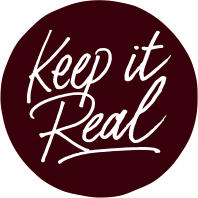Introducing our At the Bar series, where we interview Coffeebar's bold, bad ass baristas, chefs and Hospitalians to learn about their journey and passions, both in front of and away from the espresso machine. We hope these conversations inspire and demystify the people and process behind your cup of coffee. These are the hands, hearts and minds you'll find at the bar.
This week, we're talking with Coffeebar's Lead Barista Trainer and Coffee Education Manager, Becky Tachihara. Enjoy!

I found the coffee world entirely on accident. I was living in Boston and struggling to find a paid journalism gig, so I started working at Starbucks. That’s where I first started learning more about the coffee industry, and how much fun coffee can be. But what really hooked me was when I moved back to Reno and started working for a local roaster. I fell in love with the specialty coffee community, and haven’t looked back.

Vertical Coffee Roasters is a micro-roastery and pop-up cafe founded on the idea that you don’t have to be a huge company with oodles of money in order to focus on creating meaningful relationships throughout the coffee supply chain.
I’d worked closely with another of the founders, at another cafe, and when he told me about the concept for Vertical I just said “So tell me when you want my resume!”
One of the coolest, but also the most challenging, aspects of the coffee industry is that it is truly global. So when we talk about sustainability, we’re not just talking about composting our coffee grounds or recycling cups, we’re talking about the health and livelihood of millions of people around the world.
By building a farm-to-cup sourcing model, we’re working to connect with farmers, cooperatives, exporters, and importers to better understand producers’ needs. That in turn allows us to support projects that invest in the long-term sustainability - environmental, economic, and social - of coffee growing, which can only have a positive impact on the industry at our end of the supply chain as well.
Is this what motivated you to focus on coffee education?One of my favorite things about being a barista has always been getting to talk to people about coffee, and watching them have that ‘Wow, I never knew there was so much to a cup of coffee!’ moment. So as I started learning more about coffee and sharing that information, it kind of just made sense for me to pursue a career in coffee education, where I get paid to do my favorite thing :]

Our coffee education program really focuses on building knowledge and intentionally applying it. One of my most common refrains is that everything we do matters - whether that’s how we talk about our coffees with our guests, or how we choose to dial-in our espresso for the day.
Every choice we make as coffee professionals has an impact on the experience a guest will have with our product. So the goal of our education program is to give our team all the information and skills they need to take ownership of the coffee they’re serving.
You have also completed in the USBC. What do you like about competing?To me the best thing about competing was that it really pushed me to focus in and work on improving my own skills as a barista, both technically and how I talk about the coffee I serve. The atmosphere of the competitions is great as well, because you’re surrounded by all of these people who share your passion for the craft of coffee.

I would love to make coffee for Manuel Gomez and his family. Manuel is a farmer whose coffee Vertical has bought for three years in a row now through our partnership with De La Gente in Antigua, Guatemala.
I have loooooved working with Manuel’s coffee - it’s been one of my favorites every year - and it would be so amazing to make him a cup of his coffee the way we serve it in our cafe and tell him in person how much we love the coffee he’s invested so much in producing.
What purpose do you hope Coffeebar and Vertical Coffee can serve in the local community and in the larger coffee community?In our local communities, I hope that Coffeebar and Vertical will continue to be a place where people come to connect with others over delicious food and drink. As we expand our roasting program, I hope we become more and more a place where people come to learn about coffee, try new things, and generally share in our coffee geekery!
Thinking about the larger coffee community, I think our purpose really comes from our partnerships with producers and importers. We seek to work with people and organizations who are investing in improving coffee quality by investing in the communities that produce it, and who have roots in those communities.
As we continue to support meaningful projects through our coffee sourcing program, we’re contributing to the movement of our industry toward a more equitable and sustainable future. 🍻
Interested in connecting with Becky to learn more about her coffee education program and farm-to-cup initiatives?
Find her on Instagram

